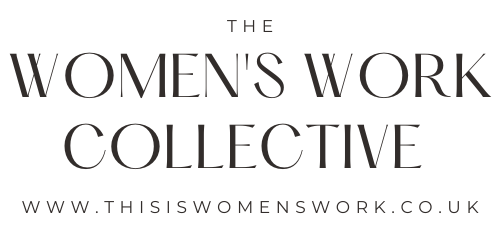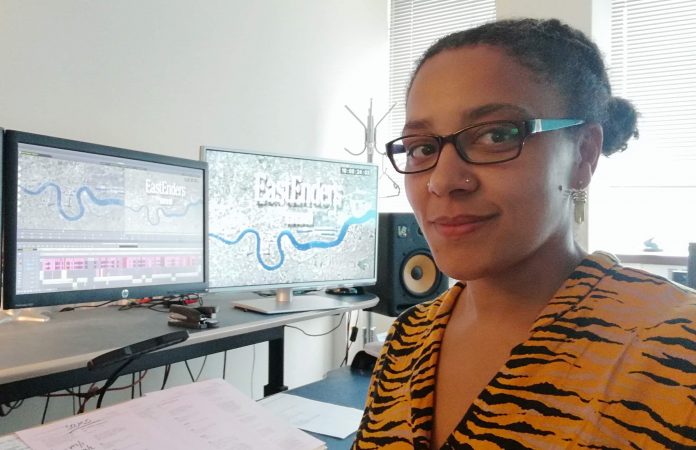I started as a post-production trainee at the BBC in 2000, became a post-production assistant and then started editing around 2006, initially on links between programmes on CBeebies and CBBC, before moving on to inserts on programmes like Blue Peter, Xchange and UK Top 40.
Becoming a trainee
I sort of fell into it. Initially, I wanted to be a pop star! I did a little editing, making scratch videos and terrible music promos at university but really thought I would work in music or audio.
I applied for the trainee scheme thinking I would follow a path to sound engineering but became more interested in cutting pictures to tell stories and play with narratives as I learnt more about the process.
Education
I went to Manchester Metropolitan University to study Creative Arts with Live Technology.
I can’t say I particularly enjoyed it, but I loved all that went with it. Being away from home, meeting new people, socialising, learning about myself. It was at a time when the internet was starting to take off and I loved learning what it could be used for. Also having access to edit suites and music software 24 hours a day was brilliant.
My university campus was in a village called Alsager, seven miles from Crewe, which felt very cut off from the world to a city girl like me! But I went to Manchester most weekends to satisfy my need for city life, music and culture.
An average day for film and TV editor
If I’m working on a factual or documentary programme I go through the story I’m working on with the edit producer and check the story diaries to see what the director thought would work. Then I start going through the rushes to pull the stories out and put them together.
This can be long and intensive work, but once you’ve found the sync you need, you can start to bring it to life by painting it with images that help tell the story. Sometimes planned stories might not come across as well onscreen so I’ll be looking for other ways to tell the story or for other stories that come through. It can be a bit like a moving jigsaw puzzle.
Hitting the ground running
On a fast-turnaround, continuing drama like EastEnders I have to hit the ground running to keep up. So I’ll group or sort out my rushes and work with the script and script supervisor’s notes to cut the scenes, before building up the atmosphere of each scene with music and sound effects.
I mostly work alone until the week’s episodes are assembled and the director comes in to see how their vision has been interpreted. Then we’ll work together to craft the best programme we can. I really enjoy seeing how a different perspective or slight tweak can change the mood of a scene.
My days can be very long and quite intense but it flies by when I’m enjoying myself.
Projects I’ve worked on
EastEnders, The Dog Rescuers, Bear Grylls Survival School, The Weakest Link, Blue Peter, Watchdog, Time For School… I’ve been lucky enough to have moved around various genres and spent time working out what I really enjoy working on, which these days is mostly documentaries, and a little drama.

If you want to be a film and TV editor…
Search out others who can inspire, guide or teach you. I’m a big believer in mentoring. I took part in the Women In Film and TV mentoring scheme and found it invaluable. The women I went through the scheme with have become really good friends and a supportive network who encourage me to keep striving for my goals.
Learn as much as you can about your role, and find people who share your passions.
Build a network
Networking is a great way to meet people. If social networking scares you, go to seminars about things that interest you, even if not exactly your role. You will learn things that are likely to be transferable, and it’s a great way to meet people.
There are a number of organisations in the film and TV industry who are doing great work supporting diversity. A few that are definitely worth looking up are Women In Film & TV, The Mama Youth Project, The Edit Collective, PrimeTime, Time’s Up, BEATS (British East Asians in Theatre and on Screen)… Find your people and raise each other up.
Challenges I’ve faced
Obviously being a woman (and a mixed-race woman at that) in a predominantly white male role has thrown up obstacles.
Luckily, I enjoy challenging assumptions and proving people wrong. I will also speak up for anyone put in an uncomfortable situation. That ability has come with time and experience, but I think it’s necessary to use that voice when I can

Also, having children and taking time out, in an industry that works you hard and then expects you to play hard made me feel like I would miss out. But I have learnt that staying in touch with friends and colleagues in the industry, networking wherever possible, and trying to bring your best self to work keeps you connected. I know what is expected of me and manage my time accordingly.
Advice to my younger self
It’s OK to take your time finding your path and to change your mind. I thought I would be considered a failure if I didn’t make it in my first choice of career, or even genre (in both music and TV) but once I relaxed into the idea I could just have fun and change direction as I go, I found myself working on things I really enjoy. Take risks and enjoy the journey!

